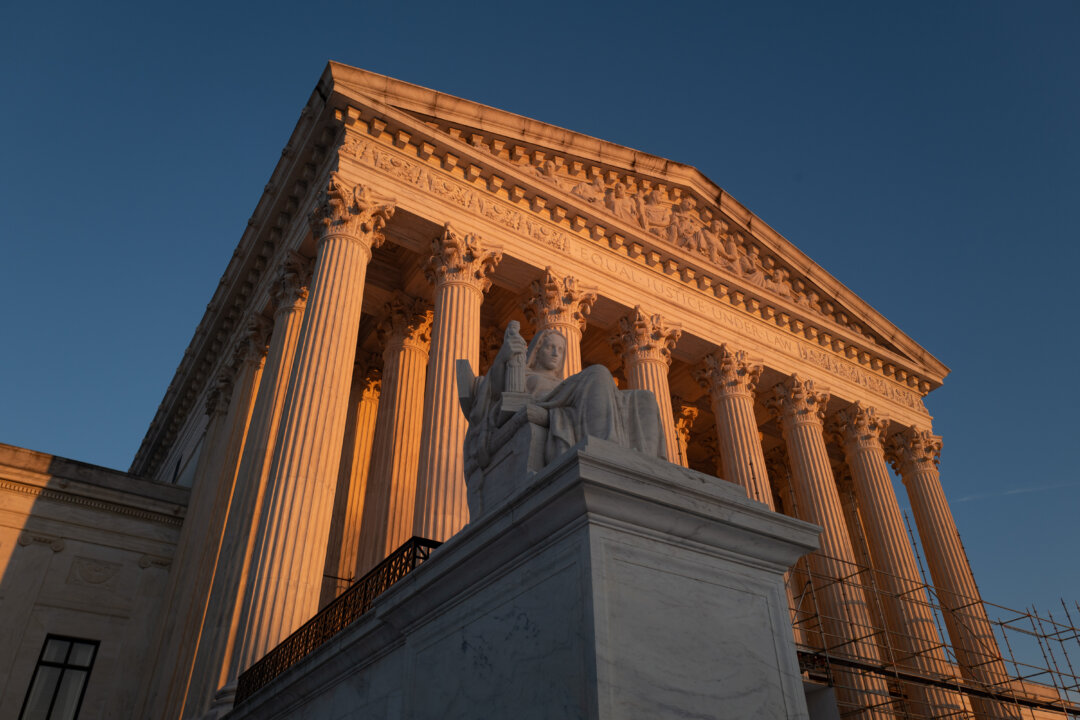
Special Counsel Hampton Dellinger argues he may only be fired for misconduct. He says his termination letter cited no reason for the firing.
The Trump administration asked the U.S. Supreme Court on Feb. 16 to allow it to fire the head of an agency that protects whistleblowers after lower courts said it could not.
Special Counsel Hampton Dellinger, who heads the U.S. Office of Special Counsel, argues he may only be terminated for misconduct during his fixed-term appointment. Dellinger said a brief emailed notice he received Feb. 7 informed him he was being fired and did not explain why. New administrations routinely fire government officials without providing a reason.
The Office of Special Counsel also enforces the Hatch Act, which prevents federal employees from engaging in partisan political activity, and safeguards the employment-related rights of military service members.
The application says the government has a “very high” likelihood of succeeding on the merits. The Constitution “empowers the President to remove, at will, the single head of an agency, such as the Special Counsel,” the filing reads.
Federal district courts, like the one that temporarily blocked the removal of Dellinger, do not have the authority “to reinstate principal officers,” according to the filing.
The lower court has “erred in ways that threaten the separation of powers,” the document said, referring to a constitutional doctrine that divides the government into three branches to prevent any single branch from accumulating too much power.
He said his tenure was guaranteed by Supreme Court precedents, including Humphrey’s Executor v. United States (1935).
The government failed to justify “the President’s hasty, unexplained action, or … the immediate ejection of the Senate-confirmed Special Counsel while the legal issue is subject to calm and thorough deliberation,” she wrote.
The D.C. Circuit’s majority opinion states that even though a temporary restraining order “ordinarily is not an appealable order,” the government requested a hearing on it because it said the order “works an extraordinary harm.”
“The relief requested by the government is a sharp departure from established procedures that balance and protect the interests of litigants, and ensure the orderly consideration of cases before the district court and this court.”
Circuit Judge Gregory Katsas dissented. He wrote that the president “is immune from injunctions directing the performance of his official duties, and Article II of the Constitution grants him the power to remove agency heads.”
Meanwhile, despite the Supreme Court appeal, the case remains pending before Judge Jackson.
On Feb. 15, Judge Jackson ordered Dellinger to file a reply to the government’s opposition to the restraining order by Feb. 20. The government is required to explain why it believes the court should dismiss Dellinger’s lawsuit in a filing that is due Feb. 21. The court will hold a hearing on Feb. 26 regarding Dellinger’s request to upgrade the temporary restraining order to a preliminary injunction.
The Trump administration has met a series of legal challenges to its policies. Several lower courts have granted temporary restraining orders preventing the administration from taking various actions, such as ending birthright citizenship for children born to noncitizens on U.S. soil, and blocking funding for some medical procedures for transgender-identifying minors.
The Epoch Times reached out for comment to the DOJ and Dellinger’s attorneys at Hecker Fink in Washington. No replies were received by publication time.
Zachary Stieber contributed to this report.
Original News Source Link – Epoch Times
Running For Office? Conservative Campaign Consulting – Election Day Strategies!
